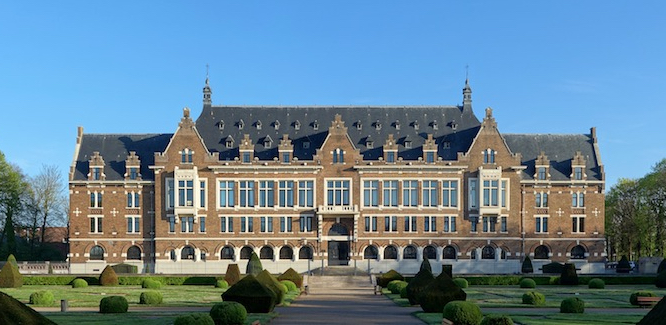Le CRIL en bref


Le Centre de Recherche en Informatique de Lens (CRIL UMR 8188) est un laboratoire de l’Université d’Artois et du CNRS dont la thématique de recherche fédératrice concerne l'intelligence artificielle et ses applications. Il regroupe près de 70 membres : chercheurs, enseignants-chercheurs, doctorants et personnels administratifs et techniques.
Le CRIL participe à la Confédération Européenne de Laboratoires en Intelligence Artificielle CAIRNE et à l'alliance régionale humAIn. Il bénéficie du soutien du Ministère de l’Enseignement Supérieur et de la Recherche, du CNRS, de l’Université d’Artois et de la région Hauts de France.
Le CRIL est localisé sur deux sites à Lens : la faculté des sciences Jean Perrin et l’IUT.
Actualités (RSS)
Séminaire Explainability in Computer Vision
Explainability in Computer Vision
12 févr. 2026 - 14:00This presentation introduces explainability in computer vision and discusses limitations of post-hoc explanationmethods. An alternative approach based on intrinsic interpretability is then presented, where importance is learned explicitly and integrated into the model’s computation. The presentation concludes with a discussion of limitations of existing evaluation metricsand challenges in intervention-based explainability.
Séminaire Séminaire Christophe Cerisara-LORIA
LLM cost reduction: a loss landscape point of view
5 févr. 2026 - 14:00In this talk, I will first briefly introduce our recent contributions to LLM training in Nancy, and then I will summarize a selection of the research works that have been carried out in our team to reduce the cost of LLM training, in particular with LLM compression, incremental training, PEFT and weakly-supervised training. All these approaches can be interpreted through a common lens: the loss landscape. I will adopt this point of view as a common thread to tie several of our cost reduction approaches together in my presentation.
Cérémonie de remise de médaille d'argent du CNRS à Pierre Marquis
Le 19 janvier 2026, Pierre Marquis a reçu la médaille d’argent du CNRS. La médaille d’argent distingue des chercheurs et des chercheuses pour l’originalité, la qualité et l’importance de leurs travaux, reconnus sur le plan nationale et international.
Séminaire Séminaire de Michael A. Müller
On argumentation and dialogue
8 janv. 2026 - 14:00In practice, argumentation is often dialogical. We argue mostly not in isolation but with others by exchanging utterances. In contrast, computational approaches that look at argumentation in terms of argumentation frameworks (abstract, bipolar, structured, …) consider argumentation as a structure to be evaluated. In this talk, I first want to to briefly show how the dialogical character of argumentation shows itself in core parts of informal argumentation studies. Then I will discuss how the two perspectives on argumentation can supplement each other, by focusing on two ways and situations where argumentation and dialogues interact: when evaluating inference-claims and in advisory dialogues.